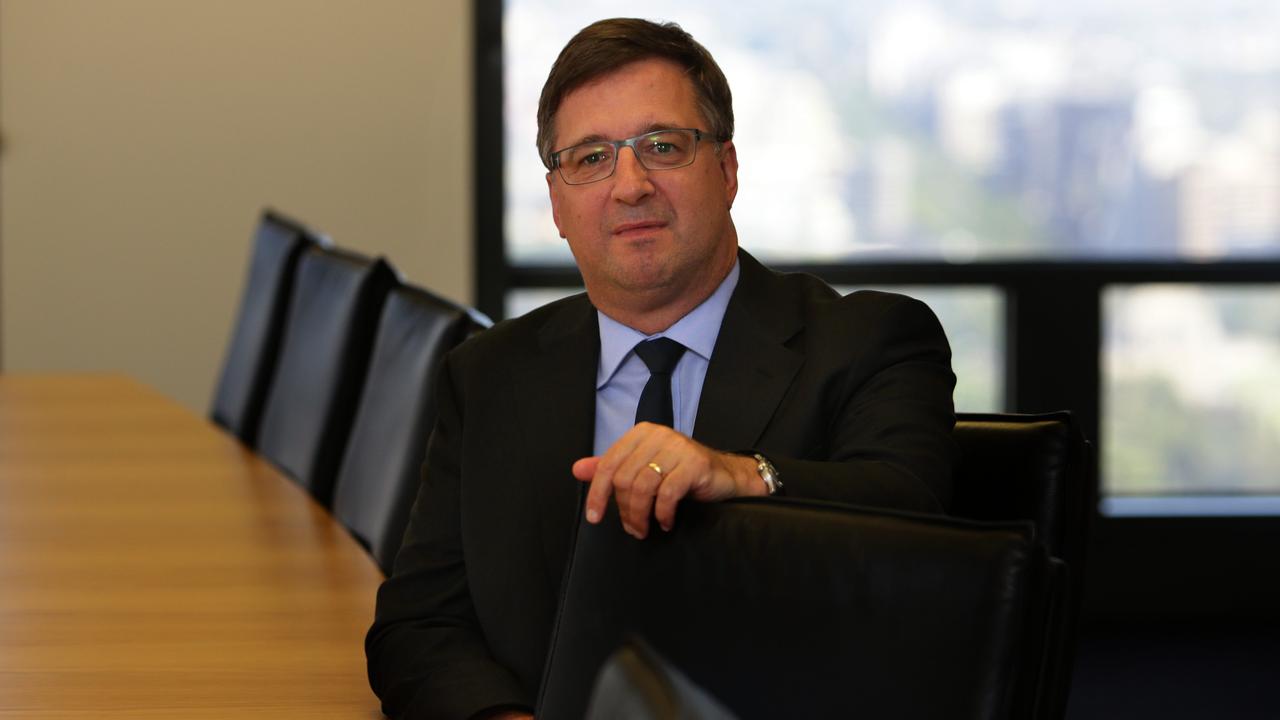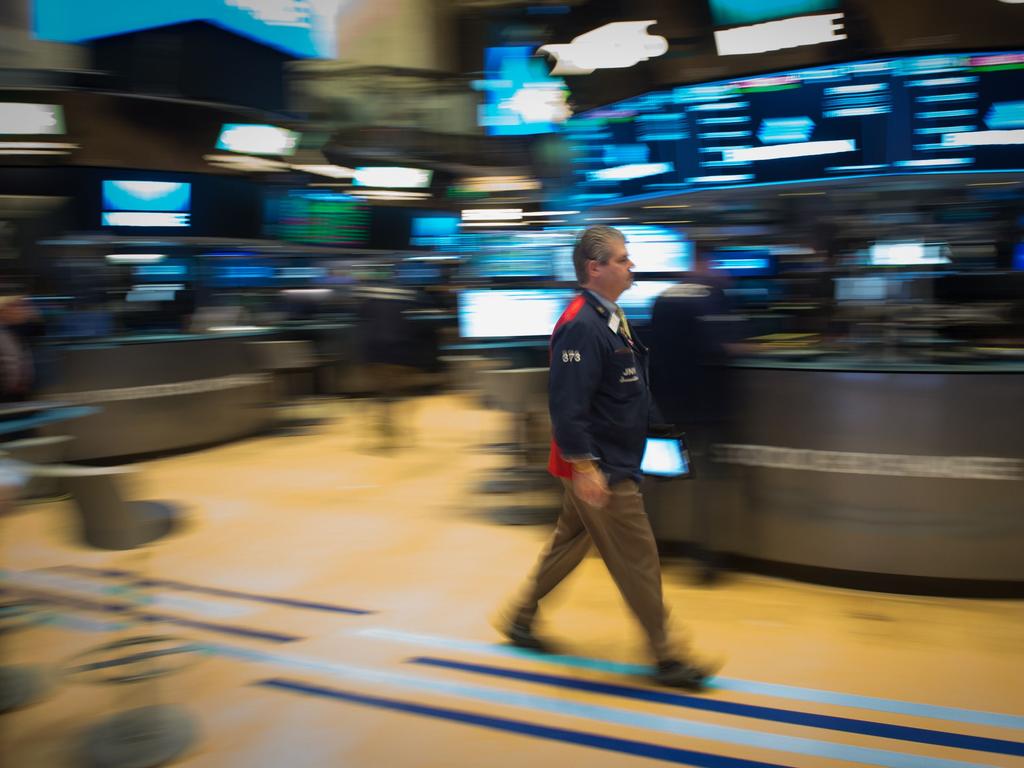Reserve Bank must raise interest rates faster, says Mark Burgess, former Future Fund chief
Central banks should quicken the pace of returning rates to normal levels to provide ammunition for the next crisis, says the former head of the Future Fund Mark Burgess.

Business
Don't miss out on the headlines from Business. Followed categories will be added to My News.
Central banks need to lift their game in the economic recovery phase and quickly return rates to more normal levels to ensure they have the right tools to tackle another crisis or downturn, markets stalwart Mark Burgess says.
The former Future Fund chief believes central banks around the world have not been looking ahead enough, and should have a “good hard think” about their roles over the next 12 months.
“They should get credit for the way the managed the crisis, because they did manage it super-quick,” he told a Hamilton Wealth Partners and Maxima Private event.
“With hindsight, a lot of them made long-term promises and gave away the optionality they had to change those policies easily.
“They’ve been slow in being forward-looking, and this is not just in Australia – this is everywhere.”
The Reserve Bank last week raised the cash rate by 25 basis points to 0.35 per cent and said further hikes were probably needed to cool inflation.
The central bank has, however, faced criticism for not anticipating a sharp spike in consumer prices this year, and earlier saying interest rates were unlikely to rise in Australia until 2024.
Other central banks have moved earlier in their efforts to tackle inflation.
The US Federal Reserve’s latest meeting saw it push through a half-percentage-point interest-rate increase to a target range between 0.75 per cent and 1 per cent, while the Bank of England last week raised its key rate a fourth time to 1 per cent.
“Arguably the central banks need to hurry because they also don’t have a lot of is ammunition should there be another crisis. So they are kind of in no man’s land at the moment,” said Mr Burgess, who is also chairman of Jamieson Coote Bonds’ advisory board and the Official Monetary and Financial Institutions Forum’s Asia chairman.
OMFIF is a global think tank focused on central banking, economic policy and financial markets.
Mr Burgess said central banks had learned from the Global Financial Crisis, but probably “swung too far the other way” to stimulate economic activity during the challenges posed by Covid-19.
“They’ve become expert at that and not quite clear in their processes around the recovery phase … They need to engage more with the marketplace, become more market-aware and savvy and this, again, doesn’t just apply to Australia.”
But some market pundits fear aggressive rate hikes may tip several economies into recession as central banks throw their policy tools at taming inflation.
Mr Burgess said while that was a risk, Australia had a solid banking system, and while house prices had surged any correction would be closely monitored by the RBA.
“The possibility of recession increases whenever you get monetary tightening and we know that, but it’s not always the case,” he added.
“The possibility of recession is going up. But arguably the imbalances that cause serious recessions are less obvious.
“Now that said, an imbalance could be geopolitical risk, but they are low statistical events.
“Most bear markets and most recessions have to be led down by something.”
Asset manager Amundi last week told clients that Europe was at risk of recession due to factors including higher producer prices weighing on profit margins and energy market dislocation.
“The US economy remains solid while the eurozone is the most exposed to stagflationary risk,” Amundi said.
“We will most likely see at least a short-lived recession in the second half, triggered by Germany and Italy, while France and Spain might show some resilience.”
The note also highlighted a divergence as central banks in Japan and China retained an easing stance, standing ready to cut rates to buoy activity.
Locally, with a federal election approaching later this month, Mr Burgess noted narrowing budget deficits should become a priority post a poll result.
“What neither party is talking much about is how to fix the fiscal challenge,” he said.
“And that’s for good reason because it doesn’t sell.
“Whoever wins is going to have to think that through and that’s a challenge.
“We can no longer have an infrastructure-led recovery from here because we’ve got challenges with costings.”
Mr Burgess doesn’t expect new infrastructure projects to be at the forefront of this election given inflationary pressures in construction. “They’ve (federal and state governments) arguably been crowding out the construction area with their policies,” he said.
Mr Burgess noted that fiscal and monetary policy had worked well in tandem during the depths of the pandemic to support the economy and he hoped they would continue to in the period ahead.
Asked about the tumultuous start to 2022 for bond markets, he said: “We’re beginning to see at the margin people allocate back to government bonds.”
Mr Burgess – who is also a HESTA board and investment committee member – wouldn’t comment on the industry fund giant’s participation in a KKR-led $20bn bid for Ramsay Health Care, but highlighted that private capital would continue to be a force in local deal-making.
“Capital is now quite sophisticated … it’s able to think about should a company go private or should it stay public, that’s a broad theme,” Mr Burgess said.
He is also of the view companies must strike the right balance between focusing on environmental, social and governance obligations and not losing sight of pursuing growth and investing in areas such as technology or innovation.
“We‘re all focused on ESG but we must also focus on working with companies to allow them to grow,” Mr Burgess said.
“It’ll be a mixture of techniques …
“We’ve got to get that balance right,” he said.
Originally published as Reserve Bank must raise interest rates faster, says Mark Burgess, former Future Fund chief









